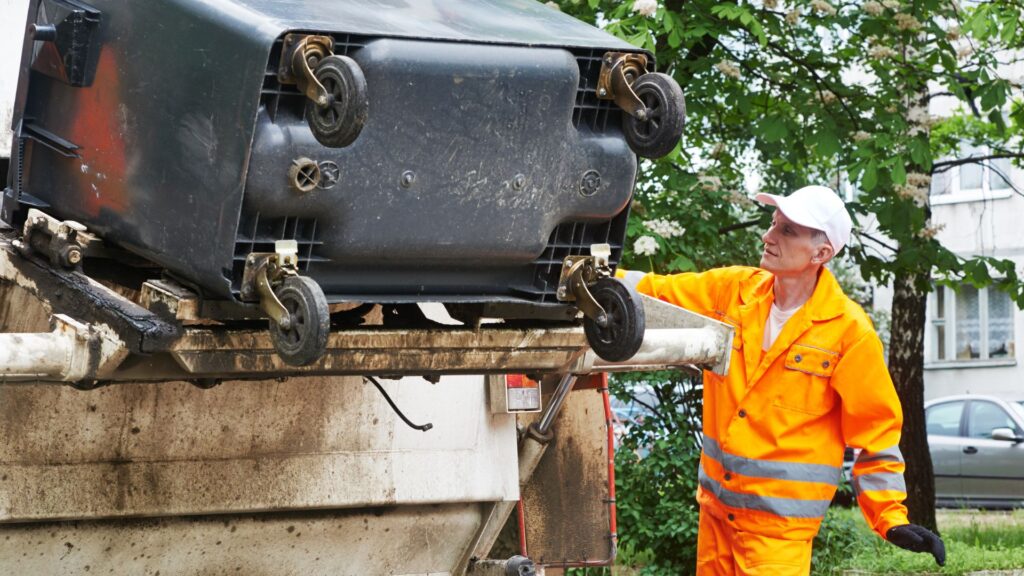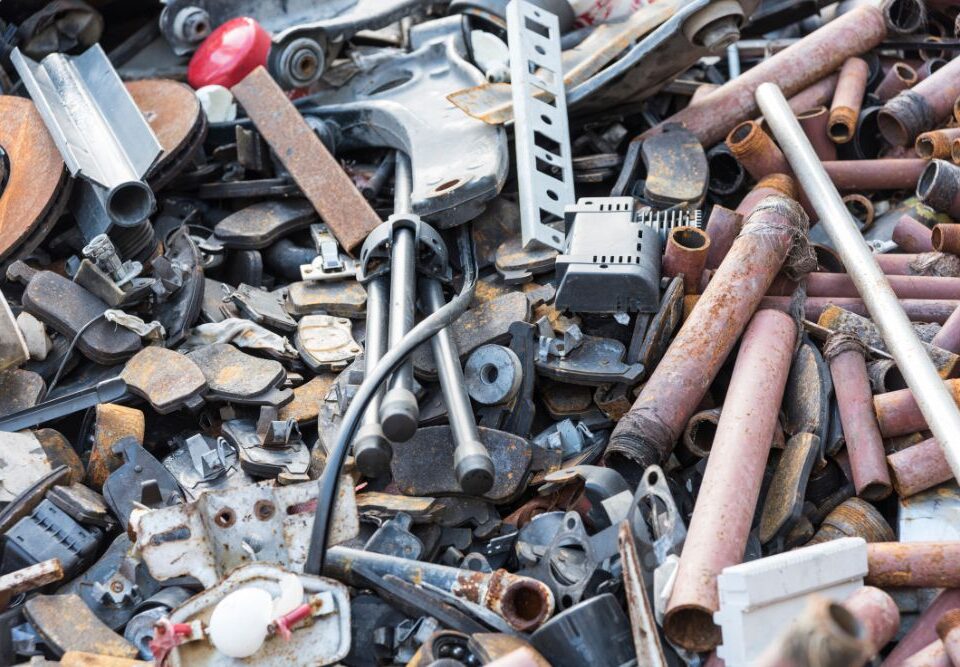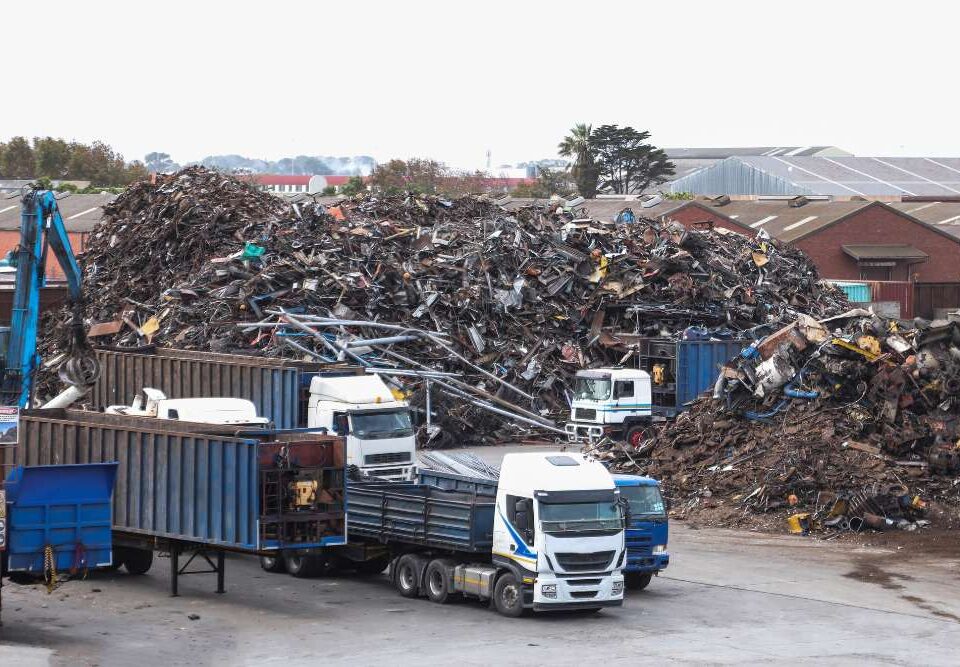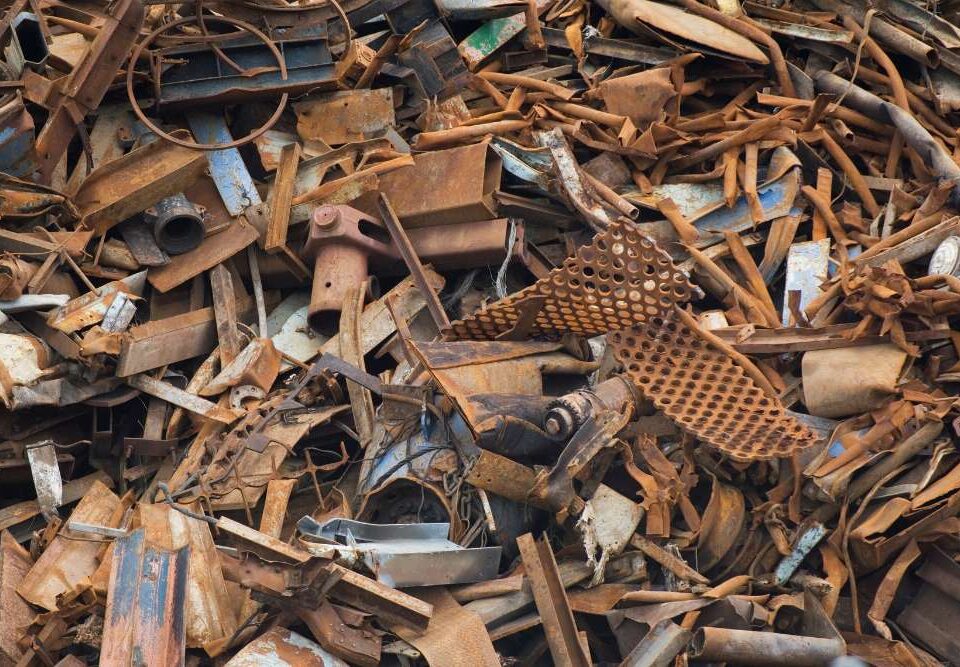
How to Handle Toxic E-Waste in an Eco-Friendly Manner
September 23, 2025
Eco-Friendly Junk Removal What Happens to Your Items After Pickup
September 23, 2025The Impact of Recycling Scrap Metal on Global Sustainability
Scrap metal recycling has emerged as one of the most effective methods of supporting global sustainability. Unlike other waste streams that are difficult to repurpose, metal can be recycled repeatedly without losing quality. This creates an endless cycle where old appliances, vehicles, and construction materials are transformed into new products, reducing the need for mining and conserving valuable natural resources. Beyond its environmental value, recycling also generates economic opportunities by fueling industries that rely on affordable raw materials. To truly grasp its importance, it is essential to explore how recycling scrap metal influences the world on multiple sustainability levels.
How scrap metal recycling conserves natural resources
Recycling scrap metal plays a critical role in conserving the Earth’s limited natural resources. Mining for iron ore, bauxite, and other raw materials is not only resource-intensive but also environmentally destructive. When metals are recycled, the need to extract fresh resources decreases dramatically. This conservation effort directly reduces the strain placed on forests, soil, and water systems that are often disrupted by mining operations.
The benefits also extend into reducing the consumption of fossil fuels used during mining and refinement processes. By using recycled metals, manufacturers bypass the need for high-energy extraction, lowering greenhouse gas emissions. As a result, recycling becomes more than just a localized effort; it turns into a global conservation strategy. Every ton of metal diverted from landfills helps preserve raw materials for future generations while protecting fragile ecosystems that would otherwise face exploitation.
The energy savings achieved through recycling
One of the most measurable advantages of recycling scrap metal lies in the vast energy savings it provides. Producing new metals from ore requires significant energy, often involving high-heat smelting and energy-intensive chemical processing. By contrast, recycled metals are processed at a fraction of this energy cost. For instance, aluminum recycling saves up to 95 percent of the energy required to create aluminum from raw bauxite.
These savings translate directly into reduced greenhouse gas emissions, making recycling a vital contributor to climate change mitigation. With global industries constantly seeking methods to cut their carbon footprint, scrap metal recycling provides a straightforward yet powerful solution. The more we recycle, the less energy is wasted in unnecessary extraction and processing. This efficiency not only benefits the planet but also lowers production costs, creating economic advantages that ripple through global manufacturing networks.

How recycling reduces landfill waste
Scrap metal recycling prevents valuable materials from ending up in landfills where they would otherwise contribute to environmental pollution. Landfills are designed to handle decomposable waste, but metals take centuries to break down and often leach harmful substances into the surrounding soil and water. By recycling, these items are kept out of landfills, minimizing the risk of contamination.
Beyond pollution control, landfill diversion also saves space. As urban populations grow, available land for waste disposal becomes increasingly scarce. Recycling metals ensures that landfill sites do not reach capacity prematurely, reducing the pressure on municipalities to find new dumping grounds. This creates a dual benefit: protecting natural landscapes while addressing the global waste crisis. In this way, metal recycling is a key strategy in sustainable waste management, transforming potential environmental hazards into valuable industrial inputs.
The economic opportunities generated by scrap recycling
Recycling scrap metal not only benefits the environment but also drives significant economic growth. By supplying affordable raw materials to manufacturers, recycling reduces production costs and stimulates industrial efficiency. Industries ranging from construction to automotive rely heavily on recycled metals, and this demand creates jobs across collection, processing, and distribution sectors.
Local communities especially benefit from these opportunities. Scrap recycling centers provide steady employment, while global markets gain reliable streams of reusable resources. Additionally, the resale value of metals such as copper, steel, and aluminum creates consistent financial incentives to support recycling programs. By combining environmental responsibility with economic reward, scrap metal recycling fosters a sustainable cycle that supports both businesses and workers. This dual benefit demonstrates how recycling integrates seamlessly into global sustainability frameworks.
How recycling supports circular economy principles
Scrap metal recycling is a cornerstone of the circular economy, a model that emphasizes keeping materials in use for as long as possible. Instead of a linear system where resources are extracted, used, and discarded, recycling creates a loop where metals flow continuously through production cycles. This reduces dependence on virgin materials and cuts down waste at the same time.
The circular economy also emphasizes efficiency and innovation. By integrating recycled metals into their supply chains, industries minimize their environmental impact while enhancing their resilience to resource shortages. This approach ensures that resources are not depleted unnecessarily, and products are designed with recyclability in mind. Scrap metal recycling proves that waste can become a renewable resource, aligning perfectly with global strategies that aim to balance economic growth with environmental stewardship.
Reducing carbon emissions through recycled metals
The role of recycled metals in reducing carbon emissions cannot be overstated. Mining and refining raw materials account for a large portion of global industrial emissions. By substituting recycled metals, industries cut down on energy use and the associated release of carbon dioxide. This impact is particularly significant in sectors such as steel and aluminum production, which are notoriously carbon-intensive.
When metals are recycled, the reduced demand for mining also lowers the emissions generated by heavy machinery, transport, and processing facilities. These reductions make scrap metal recycling a critical part of the fight against climate change. As global policies increasingly emphasize emission reductions, recycling offers a practical and scalable solution. Each ton of metal recycled contributes directly to meeting international climate targets, demonstrating the importance of local recycling efforts in addressing a global crisis.
How recycling safeguards ecosystems and biodiversity
Mining activities pose serious threats to ecosystems and biodiversity, often destroying habitats and contaminating waterways. Recycling scrap metal reduces the need for such destructive practices, protecting countless species from displacement and pollution. By keeping extraction to a minimum, recycling safeguards forests, wetlands, and other delicate environments from irreversible damage.
The benefits are not limited to land-based ecosystems. Marine environments also gain protection, as mining operations near coastlines and river systems are curtailed when recycled metals are prioritized. Healthy ecosystems, in turn, sustain biodiversity, which plays a crucial role in climate regulation and food security. Scrap metal recycling thus serves as a quiet yet powerful ally in global conservation efforts, ensuring that natural systems continue to thrive alongside human development.
The global scale of scrap metal recycling impact
Although recycling often starts with local programs, its impact resonates on a global scale. Recycled metals flow into international supply chains, reducing the need for new mining projects in resource-rich regions. This redistribution of resources helps balance global environmental pressures and provides developing countries with access to affordable industrial materials.
Furthermore, global collaboration in recycling strengthens sustainability networks. Nations that embrace scrap recycling reduce their reliance on imports, cut costs, and support climate goals. Over time, these collective efforts add up, creating a measurable reduction in environmental degradation. Scrap metal recycling is more than a local activity; it is part of a worldwide movement toward responsible resource management, where every piece of metal saved contributes to a healthier planet.
The role of technology in advancing recycling efforts
Technological innovation is pushing scrap metal recycling into new frontiers. Advanced sorting technologies, robotics, and artificial intelligence are making it easier to identify, separate, and process metals with unprecedented precision. These improvements increase efficiency and reduce contamination, ensuring that recycled metals maintain high quality standards suitable for industrial use.
Additionally, breakthroughs in metallurgy and chemical processing are expanding the types of metals that can be recycled effectively. This innovation not only boosts recycling rates but also lowers costs, making the process more accessible worldwide. As technology continues to evolve, recycling will become even more integral to sustainability strategies. By embracing these advancements, societies can maximize the potential of scrap metal recycling to conserve resources and support global environmental goals.
Why individual choices matter in global sustainability
While global industries play a major role, individual participation in recycling is equally important. Every household that recycles old appliances, vehicles, or metal scraps contributes to the larger movement toward sustainability. These choices may seem small, but when multiplied across millions of people, they create substantial environmental and economic impact.
Individuals also influence demand. By choosing products made with recycled metals, consumers encourage industries to invest further in sustainable practices. This creates a feedback loop where personal responsibility drives systemic change. Scrap metal recycling is not just an industrial responsibility—it is also a collective effort where individuals play a vital part. When households, businesses, and governments unite, the global benefits of recycling are amplified, proving that personal choices can help shape the future of sustainability.
Conclusion
North Bay Junk Removal provides a sustainable solution for managing unwanted scrap metals and other materials. Located in Santa Rosa, CA, the company emphasizes environmentally responsible practices that include recycling, repurposing, and safe disposal. By diverting metals and other items away from landfills, they help conserve resources, reduce emissions, and support the global mission of sustainability. Their approach ensures that items collected are given a second life whenever possible, whether through recycling streams or community donations.
For residents and businesses seeking a reliable partner in responsible junk removal, North Bay Junk Removal offers a service that aligns with both environmental and community goals. Their work demonstrates that clearing clutter can also support global sustainability. To schedule a service or learn more about eco-friendly junk management, call 707-478-6817. Choosing North Bay Junk Removal means supporting a cleaner planet




